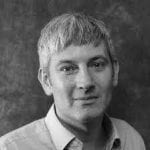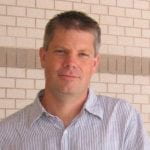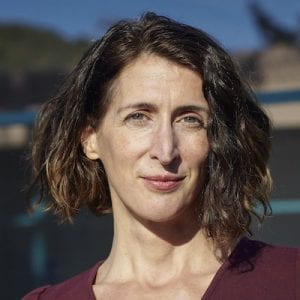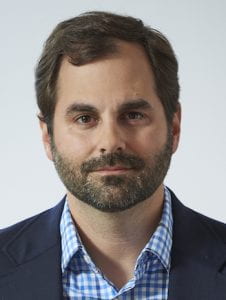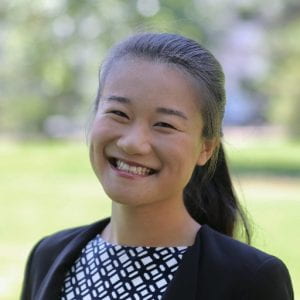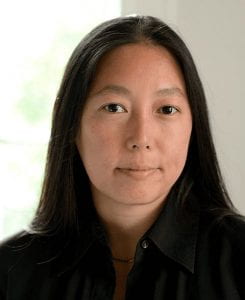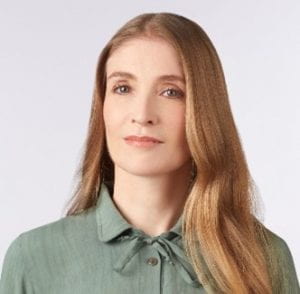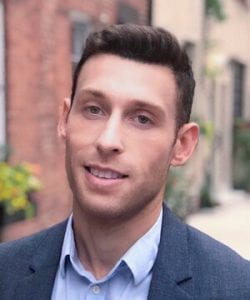Interviews with Scientists
Interviews with our weekly seminar speakersProfessor of Cognitive and Decision Sciences, University College London
“How do people represent experiences in a format that doesn’t just remember what happened, but remembers it in a way that’s useful and flexible?” (4/22/22)
Professor of Cognitive Sciences, UC Irvine
“I’m a big fan of what’s called solution-driven science.” (4/15/22)
Professor, Santa Fe Institute
“It’s important to just raise your hand, ask the stupid question, and try to encourage the other person to explain things in terms that you can understand.” (3/4/22)
Associate Professor of Psychology and of Psychiatry, Yale University
“I’m excited that we’re hitting a point where people are publicly acknowledging their struggles, and [psychiatric illnesses are] becoming much more acceptable in the way that physical illness is treated. I think our society’s headed in a good direction.” (2/18/22)
Assistant Professor of Psychology; Communication Sciences & Disorders; Northeastern University
“…Collaboration that promotes transparent, sharable, and reproducible research will help us look at variability [in language learning] in a more precise way.” (2/11/22)
David & Lucile Packard Professor of Human Biology, Stanford University
“The fact that language development is dependent on our experiences and internal states and varies so much is exciting.” (2/7/22)
MindCORE Postdoctoral Fellow, University of Pennsylvania
“Are people who are moral happier?” (3/5/21)
Assistant Professor of Psychological & Brain Sciences, Johns Hopkins University
“When you study memory, you come to realize it’s both accurate and inaccurate…I think having skepticism about your own perceptions and judgment of memory is healthy.” (1/28/22)
Professor, Neuroscience & Psychiatry, Mount Sinai
“…Other people are also essential or detrimental for survival…I’m interested to see how the brain represents social others and how we navigate our social lives.” (4/26/21)
Associate Professor of Psychology and Neural Science, NYU
“You can get people to stop judging…trustworthiness in the short term. The question is: how long do these things persist?” (March 12, 2021)
Assistant Professor of Linguistics, UPenn
“I like that we can quantify speech. We’re so affected by the way that people talk to us, not just what they say, but also their voice, their way of being.” (2/24/21)
Associate Professor of Communication, Annenberg School for Communication, UPenn
“I got interested in tobacco-related health disparities because tobacco control and racial and social justice really go hand in hand.” (2/19/21)
 Alison Gopnik, PhD
Alison Gopnik, PhD
Professor of Psychology, UC Berkeley
“The thing that’s so satisfying about working with kids is that they’re constantly surprising you…[their] capacities are just amazingly more sophisticated than we would have thought…” (10/30/20)
 Steven O. Roberts, PhD
Steven O. Roberts, PhD
Assistant Professor of Psychology, Stanford University
“If our science is racist and problematic, how are we going to address racism in the rest of the world? We have to start with us.” (11/6/20)
Assistant Professor of Psychology & Anthropology, University of Michigan
“I want to communicate…how important it is to study non-humans, both to understand them…but also to understand ourselves…” (10/23/20)
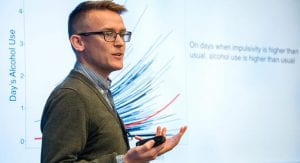 David Lydon-Staley, PhD
David Lydon-Staley, PhD
Assistant Professor of Communication, Annenberg School for Communication
“I care a lot about your day-to-day life, because ultimately, what you do day-to-day is setting you up for the rest of your life…” (10/15/20)
Marin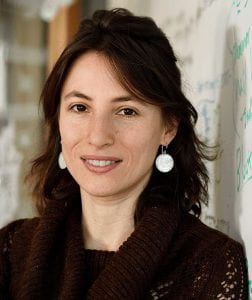 a Bedny, PhD
a Bedny, PhD
Associate Professor, Psychological and Brain Sciences, Johns Hopkins University
“…A defining feature of being human is the variety of forms that being human takes…And the question is, how do we adapt?” (9/27/20)
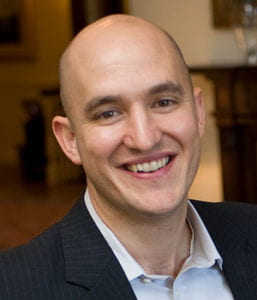 Todd Rogers, PhD
Todd Rogers, PhD
Professor of Public Policy, Harvard Kennedy School
“I try to use behavioral science methods and tools to address important social problems. Those tools are valuable and useful, and it turns out that we don’t have a shortage of important social problems.” (2/28/20)
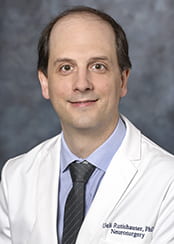 Ueli Rutishauser, PhD
Ueli Rutishauser, PhD
Board of Governors Chair in Neurosciences; Director, Human Neurophysiology Research; Professor of Neurosurgery; Neurology; Biomedical Sciences; Cedars-Sinai
“I am acutely aware of the tremendous importance of memory in defining who each of us are and how devastating it is to lose this ability, increasing my drive to find ways to improve memory.” (2/21/20)
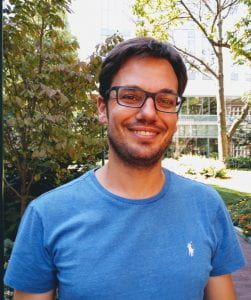 Andrea Beltrama, PhD
Andrea Beltrama, PhD
MindCORE Postdoctoral Fellow, UPenn
“Every time we use language, we are saying something about what the world out there is like — but also about who we are, where we come from, what we like.” (1/31/20)
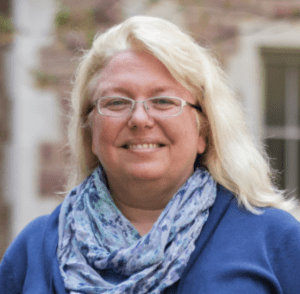 Deanna Barch, PhD
Deanna Barch, PhD
Chair and Professor of Psychological & Brain Sciences; Professor of Radiology; Gregory B Professor of Psychiatry; Washington University in St. Louis
“If we can get in there earlier and tilt things on a healthier trajectory, people will end up having positive developmental experiences that…will maybe lead to better outcomes.” (2/7/20)
 Rista Plate, PhD
Rista Plate, PhD
MindCORE Postdoctoral Fellow, UPenn
“Remembering to be good members of the scientific community and to treat each other with respect is going to be the foundation that allows creativity to really blossom.” (2/3/20)
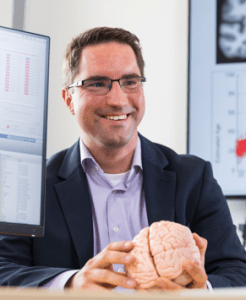 Simon Eickhoff, PhD
Simon Eickhoff, PhD
Institute of Neuroscience and Medicine (INM-7)
Heinrich-Heine University Düsseldorf
“Can we predict mental traits? Can we predict your personality, your cognitive abilities, your disorders based on brain imaging data?” (11/22/19)
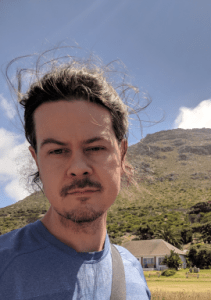 Timothy Lillicrap, PhD
Timothy Lillicrap, PhD
Adjunct Professor, CoMPLEX, University College London
Staff Research Scientist, Google DeepMind
“…We have nothing like brains found in the wild yet, but we have truly complex neural systems solving complex behaviors.” (11/8/19)
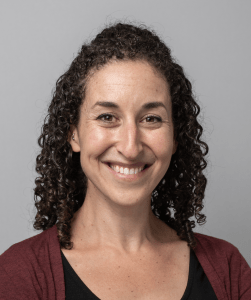 Eva Telzer, PhD
Eva Telzer, PhD
Associate Professor of Psychology & Neuroscience
University of North Carolina, Chapel Hill
“We see teenagers doing really proactive, prosocial behaviors, and so the perspective of teenagers just being reckless and crazy does not do justice to describing adolescence.” (11/15/19)
 Maya Bar-Hillel, PhD
Maya Bar-Hillel, PhD
Professor Emeritus
Psychology, Hebrew University of Jerusalem
“I stumbled upon the stumpers work primarily because it’s riddles, and I’m a riddle lover.” (11/1/19)
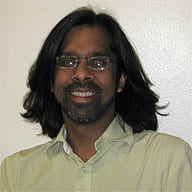 Sandeep Prasada, PhD
Sandeep Prasada, PhD
Professor Psychology
Hunter College, CUNY
“…The obvious things also need to be explained. Often there are deep explanations…” (10/25/19)
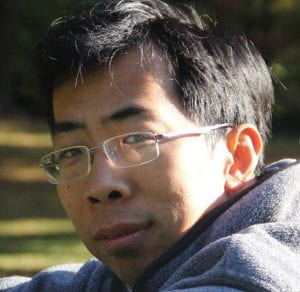 Chen Yu, PhD
Chen Yu, PhD
Professor Cognitive Science, Professor Psychological and Brain Sciences, Indiana University, Bloomington
“…the exciting part is how we can go beyond the laboratory to study phenomena in the real world because ultimately, we want our findings to have impact in the real world.” (10/18/19)
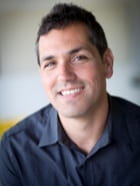 Jesse Goldberg, MD, PhD
Jesse Goldberg, MD, PhD
Department of Neurobiology and Behavior, Cornell University
“…It was eyebrow-raising: how much grit is required. There are so many rejections behind every success…” (10/4/19)
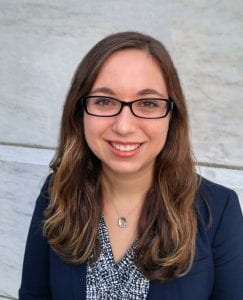 Anna Schapiro, PhD
Anna Schapiro, PhD
Department of Psychology, University of Pennsylvania
“When we’re learning new information, and it has all kinds of interrelationships, how do we see those relationships?” (9/26/19)
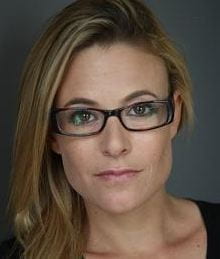 Tali Sharot, PhD
Tali Sharot, PhD
Professor of Cognitive Neuroscience; University College London
“What is driving our information-seeking behavior, the questions we ask—why are you asking me the questions you are?” (9/13/19)
 Helen Mayberg, M.D.
Helen Mayberg, M.D.
Professor of Neurosurgery, Neurology, Psychiatry, & Neuroscience; Mount Sinai
“We start to reframe what it means to feel paralyzed in the agony of depression, not to be metaphorical, but to be literal.” (5/3/19)
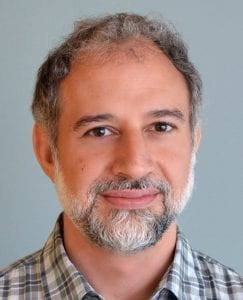 Aaron Batista, PhD
Aaron Batista, PhD
Associate Professor, Bioengineering Department, University of Pittsburgh; Principal Investigator, Sensory Motor Integration Laboratory and Engineering
“Trust your instincts, but listen to each other.” (4/12/19)
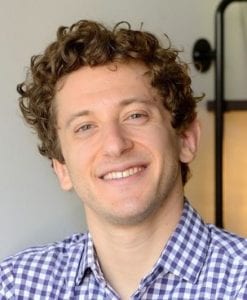 Chaz Firestone, PhD
Chaz Firestone, PhD
Asst. Professor in the Dept. of Psychological & Brain Sciences, Johns Hopkins University
“How good are you — and how can we make you better — at anticipating when your machines will fail?” (4/5/19)
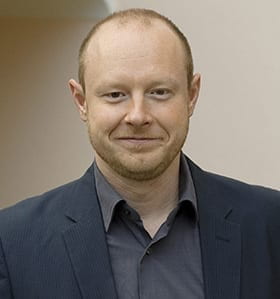 Christian Ruff, PhD
Christian Ruff, PhD
Professor of Neuroeconomics and Decision Neuroscience; University of Zurich
“…Quite often these so-called “free choices” that we make—they’re not free at all.” (3/29/19)
 Terry Jernigan, PhD
Terry Jernigan, PhD
Professor of Cognitive Science, Psychiatry, and Radiology; Director, Center for Human Development; Co-Director, ABCD Study Coordinating Center
“…Some of the most exciting bursts of creativity come when you pivot.” (3/15/19)
 Eric Turkeheimer, PhD
Eric Turkeheimer, PhD
Hugh Scott Hamilton Professor of Psychology, University of Virginia
“…Being divorced is just about as heritable as schizophrenia, and you probably wouldn’t want to say that divorce is a genetic disease of the brain.” (3/1/19)
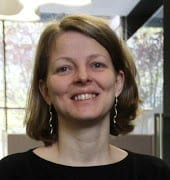 Judit Gervain, PhD
Judit Gervain, PhD
Senior Research Scientist, Laboratoire Psychologie de la Perception, CNRS & Université Paris Descartes
“There’s this interesting disconnect between how helpless a human newborn looks and how sophisticated a baby really is, at least when it comes to listening to language.” (2/22/19)
 Sam Gershman, PhD
Sam Gershman, PhD
Assistant Professor, Psychology Department, Harvard University
“…An elementary decision of whether to buy something or not really depends in some nontrivial way on a whole host of factors that extended beyond that individual object.” (2/15/19)
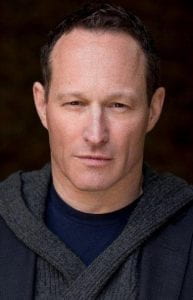 John Krakauer, PhD
John Krakauer, PhD
Director of BLAM Lab, Co-founder of the KATA project, John C. Malone Professor
Professor of Neurology, Neuroscience, & Physical Medicine and Rehabilitation, Johns Hopkins University School of Medicine
“I think science is a little bit more like being an artist. You have to suffer and struggle a bit.” (2/8/19)
 Catherine Hartley, PhD
Catherine Hartley, PhD
Assistant Professor of Psychology & Neural Science, New York University
“If you believe that you are someone who can make good things happen or prevent bad things from happening, this changes the way you’re going to behave in the later situations….” (2/1/19)
 Julia Leonard, PhD
Julia Leonard, PhD
Post-doctoral Fellow, MindCORE, UPenn
“I believe that every child is persistent in whatever task they care about and are interested in.” (1/24/19)
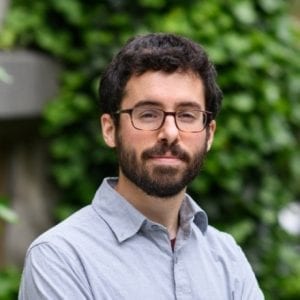 Colin Twomey, PhD
Colin Twomey, PhD
Post-doctoral Fellow, MindCORE, UPenn
“What process leads us to these similar ways of dividing up color space?…You can find these amazing correspondences between languages.” (1/24/19)
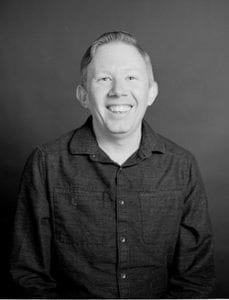 Kevin Zollman, PhD
Kevin Zollman, PhD
Associate Professor of Philosophy, Carnegie Mellon University
“What is the commonality that drives communication from humans all the way down into bacteria?” (12/7/18)
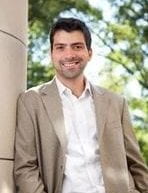 Felipe De Brigard PhD
Felipe De Brigard PhD
Assistant Professor in the Department of Philosophy, Duke University
“I find the world wonderful…As a result, I guess I never lose motivation because its everywhere.” (11/16/18)
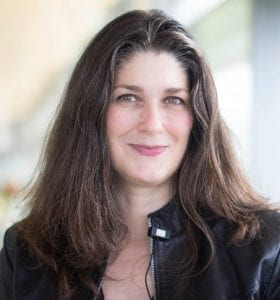 R. Alison Adcock, MD PhD
R. Alison Adcock, MD PhD
Associate Professor of Psychiatry, Psychology, and Neurobiology, and Director of the Center for Cognitive Neuroscience, Duke University
“…Motivation changes people’s behavior and interaction with space, but it also changes the brain state.” (11/9/18)
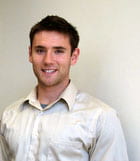 Robert Hamilton, PhD
Robert Hamilton, PhD
Co-Founder & Chief Science Officer, Neural Analytics
“I’ve always defined that we’ll be successful when we help that first patient, when that patient walks into our headquarters and says, “This device made a difference for me.”” (11/2/18)
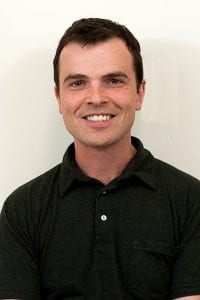 David Barner, PhD
David Barner, PhD
Professor of Psychology & Linguistics, University of California, San Diego
“If you just let yourself be wrong and accept that you’re wrong, that’s discovery, right? That’s when your expectations and what most people around you think likely should be true turns out to be false. That’s how science moves forward.” (10/19/18)
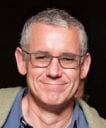 Brad Postle, PhD
Brad Postle, PhD
Professor of Psychology, University of Wisconsin-Madison
“Science is about following your bliss, right? It’s about taking advantage of accidents and unexpected developments and pursuing them.” (10/19/18)
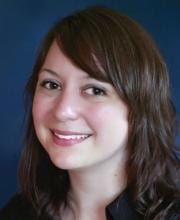 Leah Somerville, PhD
Leah Somerville, PhD
Assistant Professor of Psychology, Harvard University
“Do we offload [social feedback] and say, “Oh, it doesn’t matter what that person thinks of me,” or do we take those cues as very clear indicators of how we should see ourselves?” (10/12/18)
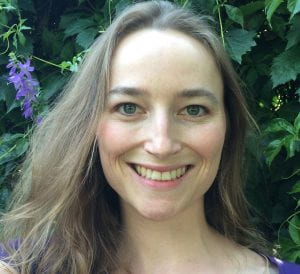 Cendri Hutcherson, PhD
Cendri Hutcherson, PhD
Assistant Professor of Psychology, University of Toronto
“What is it that leads us to be nice or to sacrifice or do something moral even when we’re tempted not to?” (9/27/18)
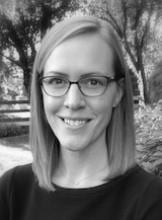 Adrianna (Anna) Jenkins, PhD
Adrianna (Anna) Jenkins, PhD
Assistant Professor of Psychology, University of Pennsylvania
“I’m fascinated by the processes in the brain that enable us to transcend our own immediate, first-person perspective to imagine, predict, and make decisions about things that we haven’t seen, haven’t experienced, or can’t access directly.” (9/21/18)
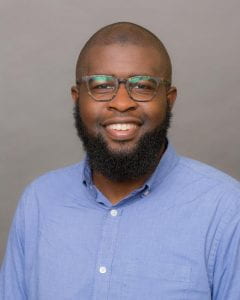 Ishmail Abdus-Saboor, PhD
Ishmail Abdus-Saboor, PhD
Assistant Professor of Biology, University of Pennsylvania
“Pain is very mysterious and puzzling in how it works. From short-term pain to longer lasting pain—what’s going on in our nervous system? What are the changes that permit or allow these long-lasting pain states?” (9/14/18)

